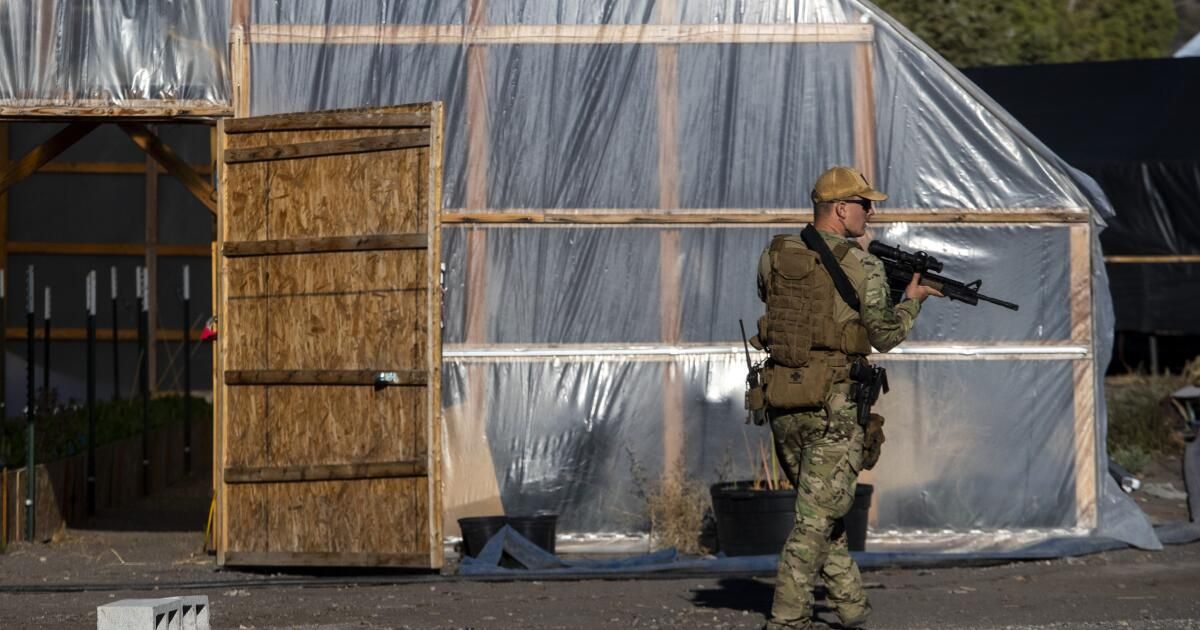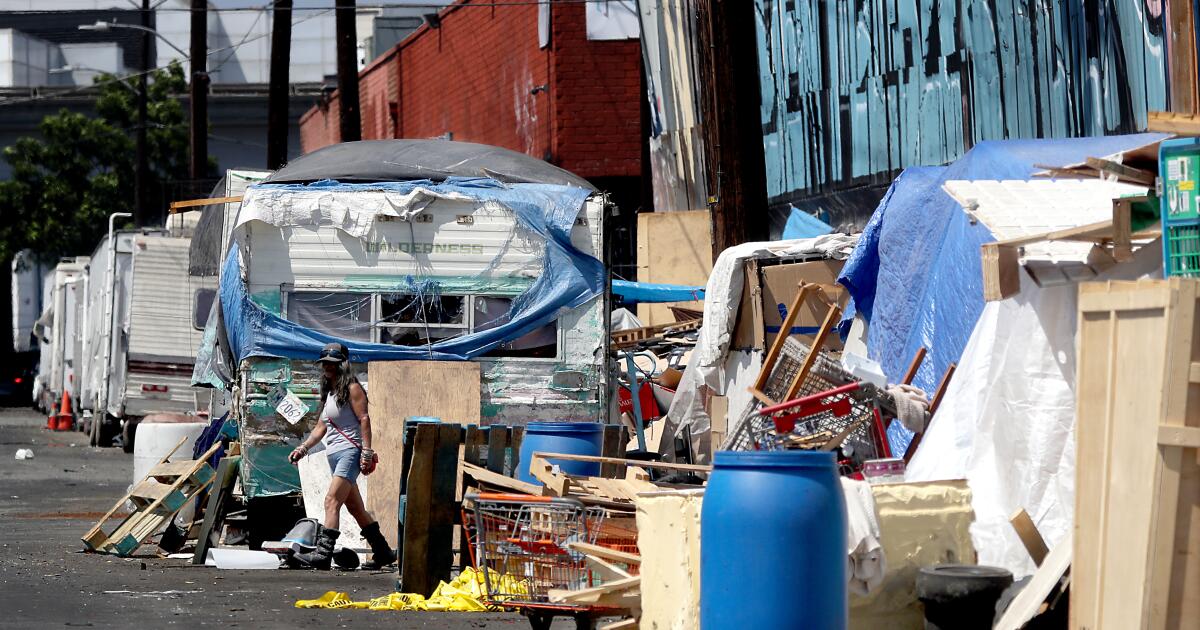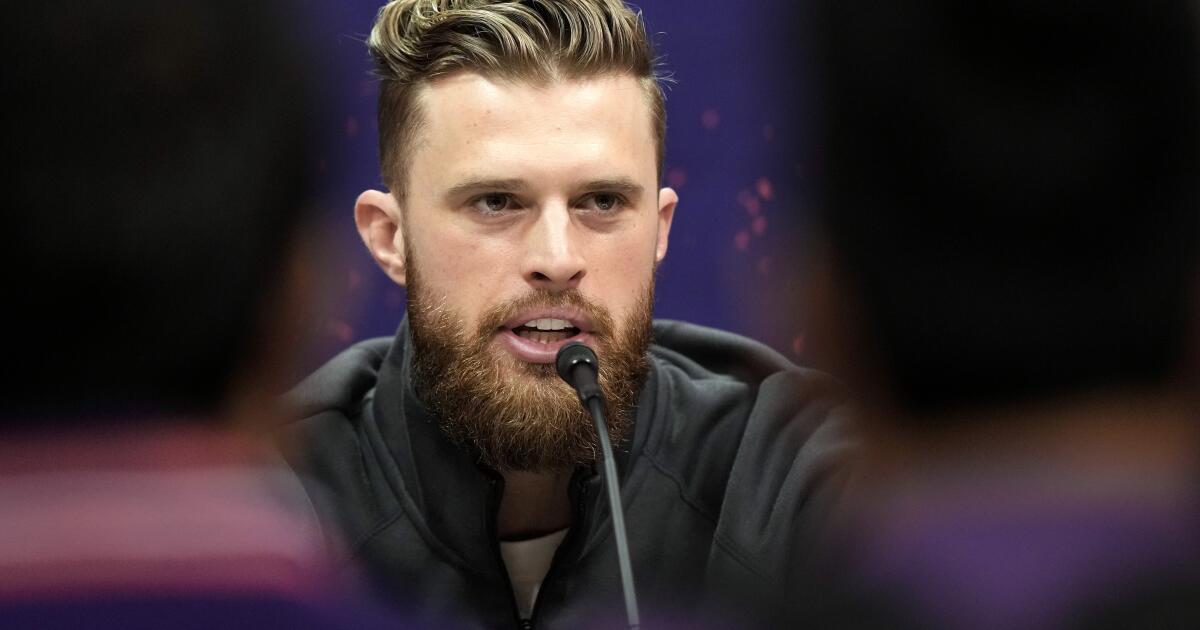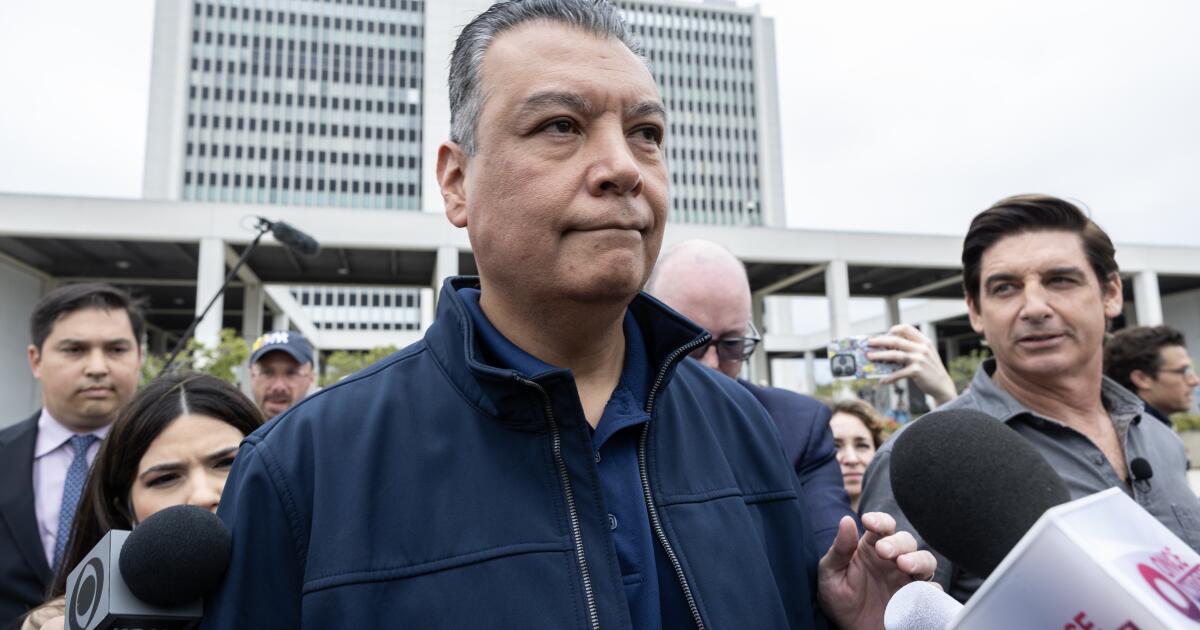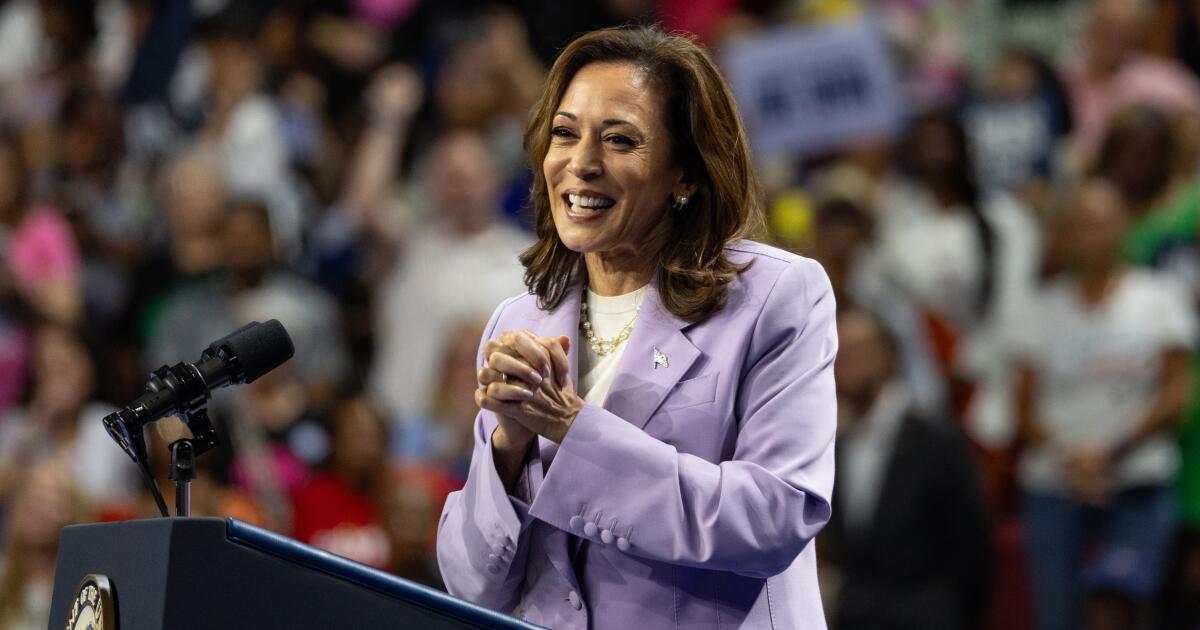Police found six people shot to death last week near Highway 395, about 50 miles from Los Angeles. The gruesome scene was another example of the type of violence that shadows illegal marijuana operations in California and beyond.
In 2020, seven people died in a rural Riverside County community. In 2021, a father and his son were not only shot, but also dismembered and burned in the Emerald Triangle in Northern California. All of the deaths were in some way related to illegal marijuana, some involving a cartel, which explains why many of the killings reflect the type of bloodshed that defined the country's Prohibition era nearly a century ago.
opinion columnist
LZ Granderson
LZ Granderson writes about culture, politics, sports, and living life in America.
“All I do is satisfy a public demand,” Al Capone once said. “Someone had to add a little liquor to that thirst. Why not me?”
In this sense, Americans continued to drink despite the ratification of the 18th Amendment in 1919, providing organized crime bosses like Capone with a lucrative underground business that was violently protected. Similarly, society has never waited for Congress to legitimize marijuana use. The 1969 stoner movie “Easy Rider” may have been characterized as “counterculture,” given that only 12% of Americans thought marijuana should be legal at the time, but in retrospect that image of recreational drug use in The United States was not “contrarian” as uncomfortably precise.
Some of the biggest names in music, including the Beatles, were writing songs about marijuana when President Nixon began his misguided war on drugs. Today we have celebrities with careers based on a stoner persona, 70% of Americans want it legalized, and about half of the states in the country already allow recreational marijuana.
And yet, somehow marijuana prohibition is still the law of the land, as the DEA considers it a Schedule I drug, like heroin. So this multibillion-dollar industry is caught between two worlds, and organized crime is once again thriving in that murky space.
This black market continues despite lax state enforcement, in part because the changes create a new problem: overtaxation. The impact of obtaining marijuana legally can feel like paying an exorbitant fee to stay out of jail. When you juxtapose what it costs to buy from the local distributor, buying from a dispensary feels less like commerce and more like extortion.
There are other practical concerns associated with an industry that is both legal and illegal.
For example, what do aspiring cannabis industry entrepreneurs put on their loan applications at federally regulated banks? In 2022, a 27-year-old woman died from an asthma attack caused by cannabis dust while working at a marijuana facility in Massachusetts. His death was the first such death reported by the Centers for Disease Control and Prevention since legalization began in 2012. To what extent can a federal agency like the Occupational Safety and Health Administration officially intervene in the work environment? of an industry that is not legal at the federal level?
This week, Sen. Alex Padilla (D-Calif.) joined other Senate Democrats in a letter urging the Biden administration to lift the federal marijuana ban. The White House is currently considering downgrading marijuana from Schedule I, which is where Nixon placed it without research, to Schedule III. However, that would not completely solve the problem.
“The placement of marijuana in the [Controlled Substances Act] “has had a devastating impact on our communities and is increasingly out of step with state law and public opinion,” the letter said. “Criminal penalties would still exist for recreational use of marijuana and for medical use of marijuana products that lack federal approval, disproportionately penalizing Black and Latino communities.”
Which is exactly what Nixon intended when he began his bigoted war on drugs.
This nod between Washington and the states also leaves the more than 400,000 people employed by the cannabis industry nationwide vulnerable to abuse. It's a huge swath of people, more in California (83,000) than in any other state. Florida is in fourth place.
You read that right: The state that Gov. Ron DeSantis described as “where the woke is going to die” is also the state where the smoke lives on, a political dynamic that epitomizes how ridiculous it is that we're still debating this along with the party. lines.
Biden should listen to senators and 70% of Americans and completely eliminate federal marijuana prohibition.
Old puritanical fantasies about who we are as a society are a harmful relic, as are the punitive tax structures surrounding cannabis. Not only that, marijuana prohibition continues to create an environment where more and more desert communities face cartel activity and local authorities find bodies on dirt roads.
The failed Prohibition era of the 1920s revealed the dangers of attempting to legislate morality. And here we are again. Surely we can all recognize that the cartel is killing many more people than smoking cannabis.
Lift the ban. Stop overtaxing. Life jacket.

